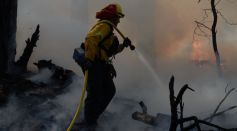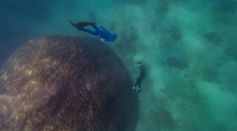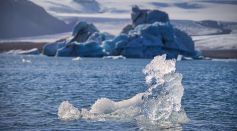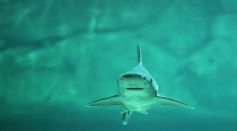ENVIRONMENT & CLIMATE

Energy Efficiency in US Buildings Could Decrease Thousands of Annual Premature Deaths Due to Particulate Matter

Wildfire Containment: Here’s Why It Sometimes Takes Long to Put the Flames Out
Mammoth Fossil Found in Florida; Another Leg Bone Discovery in the State from Prehistoric Period

Largest Coral 'Muga dhambi' Discovered in Goolboodi, Great Barrier Reef
Largest Carbon Reservoir: New Study Estimates Deposit in Earth’s Outer Core
Billion-Year Geologic Record Gap: Grand Canyon's Great Unconformity Possibly Due to Rodinia's Breakup
Geothermal Activity Under Antarctic Ice Sheet Bring Thwaites Glacier on Brink of Collapse Due to Excessive Melting

Four Storms, Wildfires Over North American Continent Captured Via Satellite Imaging
Why is White Clover Poisonous? Study Claims Its Chemical Defense Mechanism Resulted From Hybridization

Antarctic Ice Sheet's Rising Sea Levels Could Be 'Countered' by Snowfall Induced Through Warming Ocean of Northern Hemisphere

Hottest Month in History To Bring Drought and Fire Clouds in Future Summers

Two Female Sharks Reproduce Offspring; Recorded as First Case of Asexual Reproduction in Italy
Babbling Bats: Like an Infant, These Animal Species Babble to Get Their Parents' Attention

SINAI Technologies, Decarbonization Startup, Raises $10M in Seed Funding Round
Most Popular

Top 10 Scientific & Robotics Innovations from CES 2026: Advancing AI, Smart Tech, and Robotics

Gas Giants vs Rocky Planets: The Ultimate Planet Types Comparison

Faster Than Light Travel: How Warp Drive Physics and Relativity Challenge the Limits of Space Travel

Science vs. Global Warming: Is It Too Late for Mitigation Science and Climate Change Solutions?




